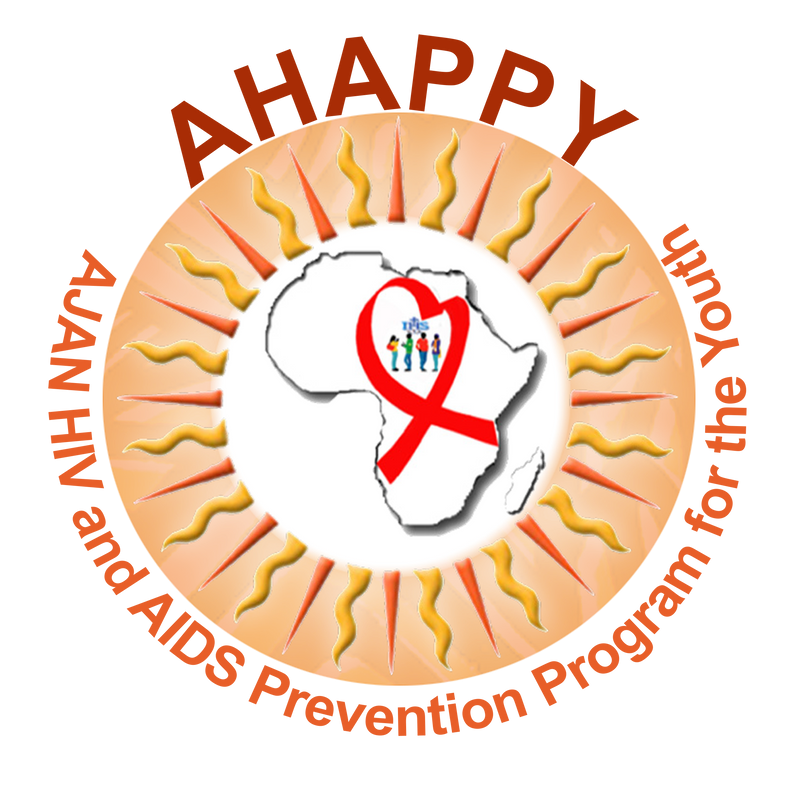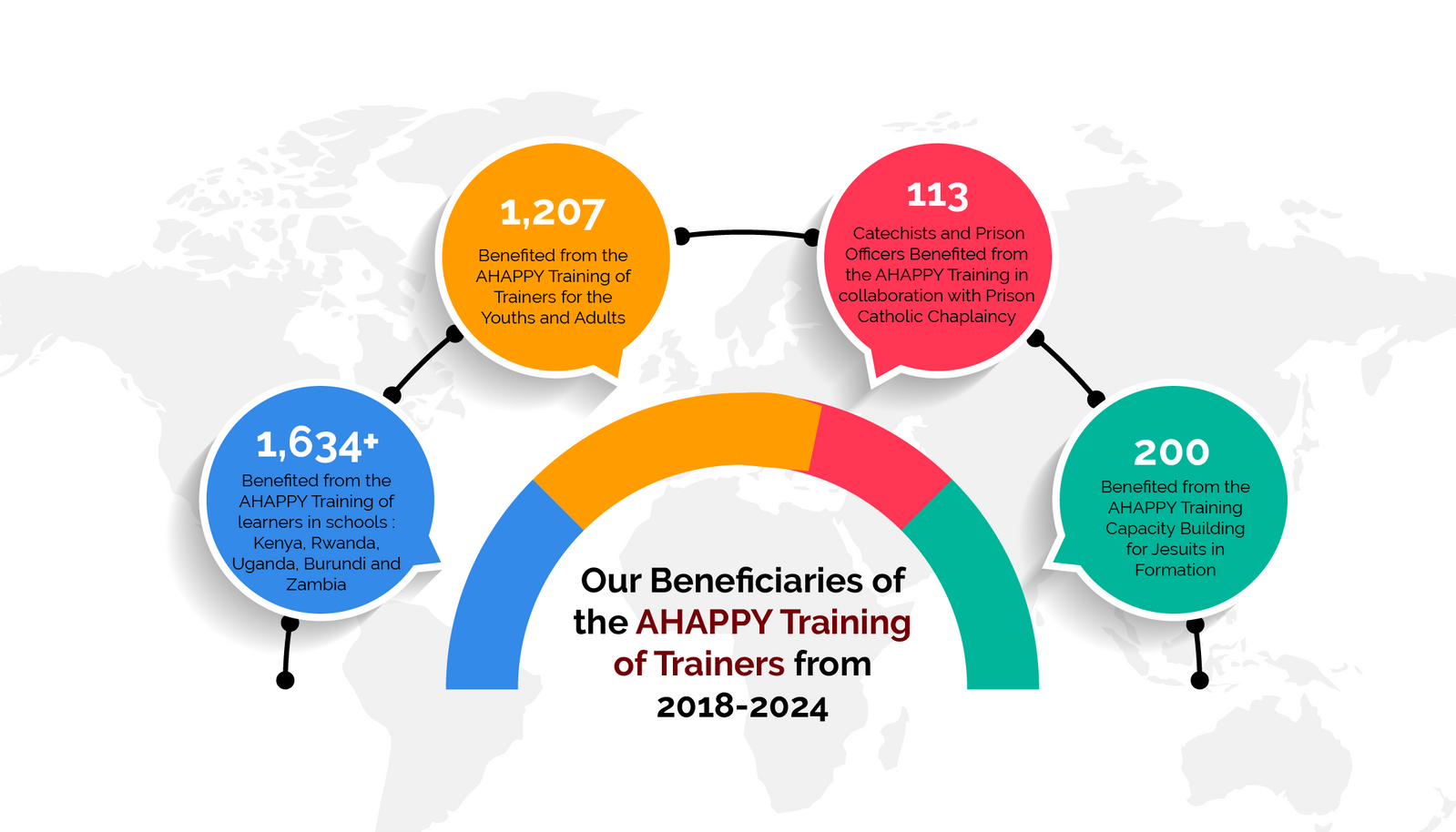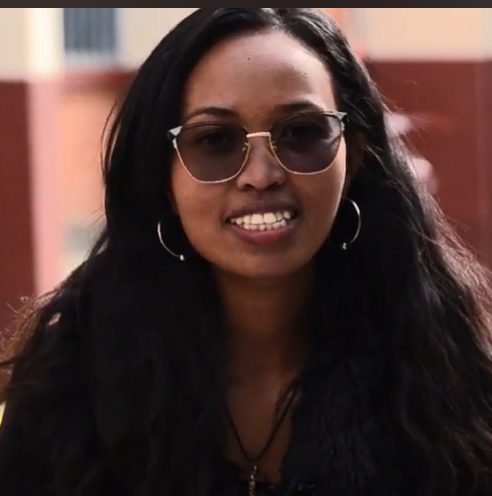
Transforming Lives Through a Wide Network of Institutions
AHAPPY’s Reach Across Africa
The program is found mostly where Jesuits are working and Catholic Institutions, such as schools and universities, community projects, orphanages, civic works and open to other faith-based institutions, government institutions and NGOs.
To date AHAPPY is present in 18 AJAN Centres across the 17 African countries where AJAN is present within eight Jesuit provinces of Africa; ACE (Democratic Republic of the Congo), AOR (Kenya, Tanzania, Uganda & South- Sudan), Madagascar Province (Madagascar),SAP (Zambia & Zimbabwe),ANW (Liberia & Sierra Leone), Rwanda-Burundi Region-RWB (Burundi and Rwanda), AOC (Togo, Chad, Central African Republic, Benin, Burkina Faso).












